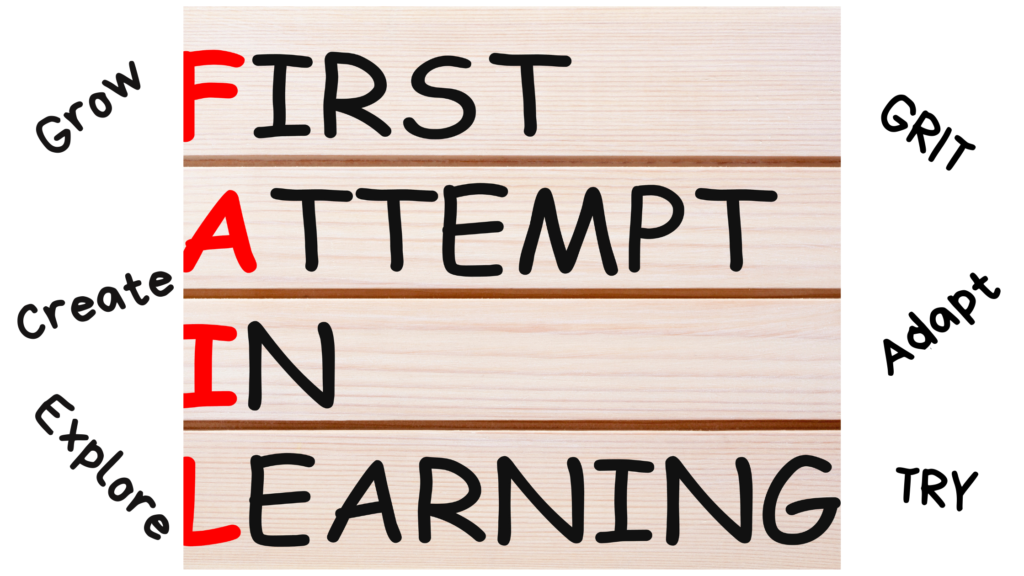
As parents and educators, we never truly want our children to fail at anything in life. We see the frustration and anxiety that it can cause them and we naturally want to protect them. Their limiting beliefs may cause them to think they are not “good enough” or “smart enough”. Let’s face it, failing at something never feels “good” or “exciting” for anyone. Adults are also reluctant to fail. If failing causes so many negative emotions, why is it good for children to fail sometimes?
Failing helps build resiliency and coping skills Failing from time to time helps children cope with other difficult areas of life that may be out of their control. Having friends move away, losing a loved one, or feeling disappointed about an outcome that did not go their way are all better managed with good coping skills. It lets them know that life does not always go the way they planned, but with time and effort, it gets better.
Failing helps build good work ethic If children and shielded from failing, they will never learn how to work hard because they rarely had to do so. Protecting children from reasonable failures in life, causes them to have a distorted perception of support. “Someone will always be there to rescue me or fix the problem”. If children learn to fail, they begin to solve problems on their own, using trial and error and success and failure to learn. Children that are exposed to failure from time to time more past the obstacles and continue to grow.
Failing teaches children to take meaningful risks. When children become comfortable with failing (they realize that it is OK to fail because it allows them to grow) , they are more apt to try new and difficult things. They try things that are hard, knowing that the journey may be long and the outcome may not be as expected. What they do realize, is that the more they go out of their comfort zone to try new things (and possibly fail), the more they learn and grow as individuals.
Failing inspires creativity When children fail differently each time, they lean how to solve problems in creative ways. The look at different angles to solve problems and are often great at ” out of the box” thinking. Creating something is the highest level of cognition. When children are willing to fail, there is no limit to how much they can create!
Failing allows children to have empathy Failing is not a wonderful feeling, even for adults. When children are comfortable with failure and the feelings that go along with it , they are more apt to empathize with others who are experiencing times of failure. Empathy helps foster supportive and encouraging relationships with their peers, allowing both parties to “grow in their failure”.
We have to teach our children that failure is not just something that should be tolerated, but embraced as well. It is an opportunity, for growth, self actualization, creativity, and knowledge. It creates resilient and well rounded children… Fail On Little Ones!